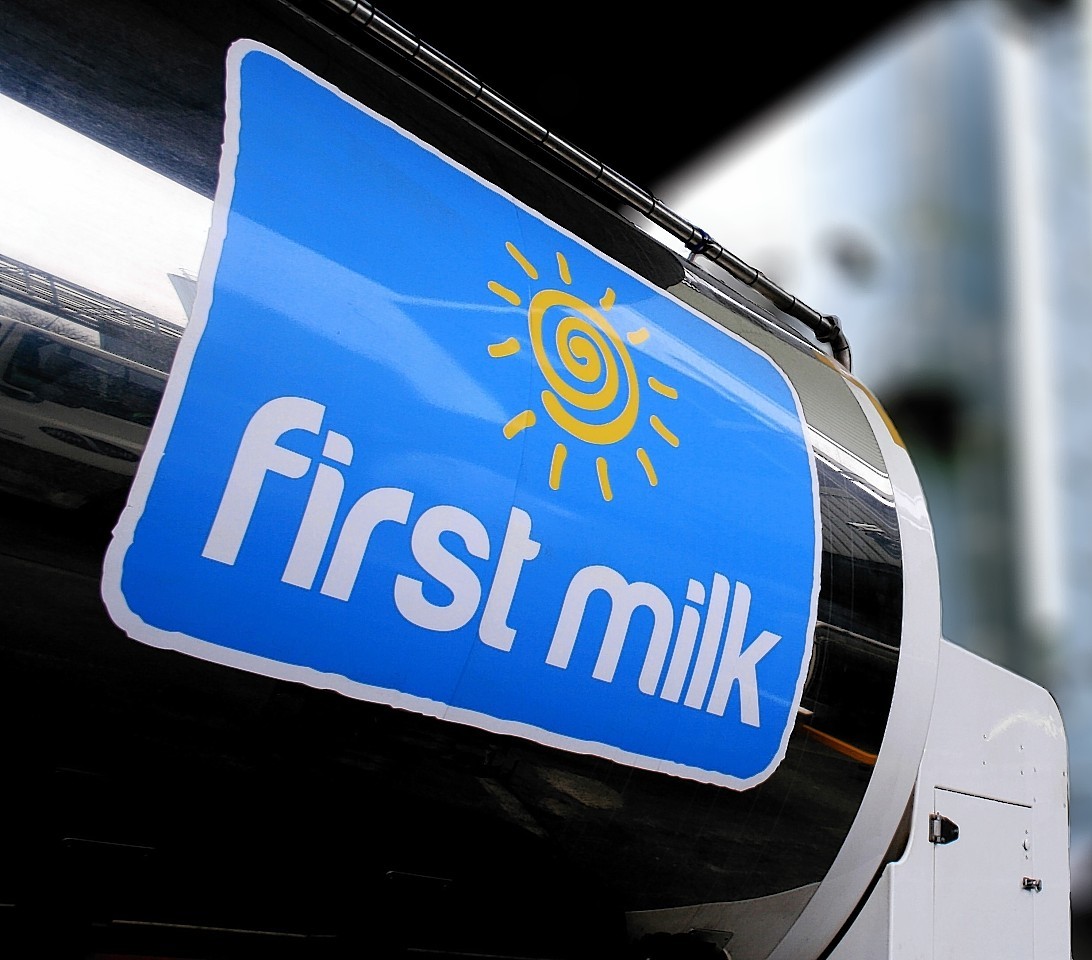Troubled dairy firm First Milk has come under fire for setting its new formula contract price at a level which will leave its farmer suppliers in an “ongoing loss-making situation”.
The Glasgow-headquartered farmers’ co-operative announced plans last month to introduce a new AB formula contract for all producers from April 1.
An AB formula contract pays farmers two prices for their milk – it aims to encourage farmers to only produce the milk that is needed for the market, by paying less, for example, on the B price when farmers are producing milk that is not needed.
The prices for the new contract will result in another price cut for the firm’s farmer members.
The A price will be set at 20.87p a litre for the manufacturing pool and 20.5p a litre for the balancing pool.
The B price will be formally fixed early next month, and is expected to range between 16p and 18p a litre.
Producers currently receive 21.57p a litre for the manufacturing pool, while those on liquid contracts get 21.2p a litre.
The new contract prices were slammed by NFU Scotland who called for an urgent meeting with the co-op and said the prices were “so far wide of the mark” from where they needed to be.
“The announcement of First Milk’s opening A and B prices for April will come as another blow to the co-operative’s hard-pressed membership as the pressure they currently face looks set to continue well into the spring,” said the union’s milk committee chairman Graeme Kilpatrick.
“A further significant cut in returns from milk and the additional capital contribution being required from members will leave the majority, if not all, members in an ongoing loss-making situation as they take the pain for the co-op’s efforts to rebuild.”
First Milk chairman Sir Jim Paice, who previously served as Defra farm minister at the peak of the last milk price crash in 2012, said the co-op would continue to monitor market indicators closely and build these into its decision-making on milk price.
“There continues to be marked volatility in global dairy prices. Nevertheless, the recent movement of market indicators means that we are cautiously optimistic that the trend for future dairy prices is, at long last, a more positive one,” said Sir Jim.
“However, there remain a number of uncertainties. For example, although the latest few GDT figures have been encouraging, as yet, they have not fed through to milk prices and many buyers are awaiting the outcome of the forthcoming spring flush.”
First Milk has been at the centre of the current dairy crisis, which resulted in the Press and Journal launching a campaign to help dairy farmers.
In January it was forced to delay payments to farmers after revealing it was suffering from cash-flow problems. It also asked members to increase their capital payments into the co-operative to keep it afloat.
Meanwhile, the main milk buyer in the north and north-east – Muller Wiseman Dairies – is holding its milk price for April.
Farmers supplying the dairy giant had a 1.75p price cut come into effect on Thursday last week, bringing the standard litre price to 24.15p a litre.
At the time of announcing the cut, the dairy said it was no longer able to maintain the widening gap between it and its competitors.
Muller has since confirmed its price will remain at this level for April.
Managing director Carl Ravenhill said: “We are encouraged by recent signs of improvement in global commodity markets and very much hope that this establishes a trend. On the supply side, production of farmgate milk will peak over the next period and we hope that this will be at a level which supports, rather than undermines stability and progress.”
